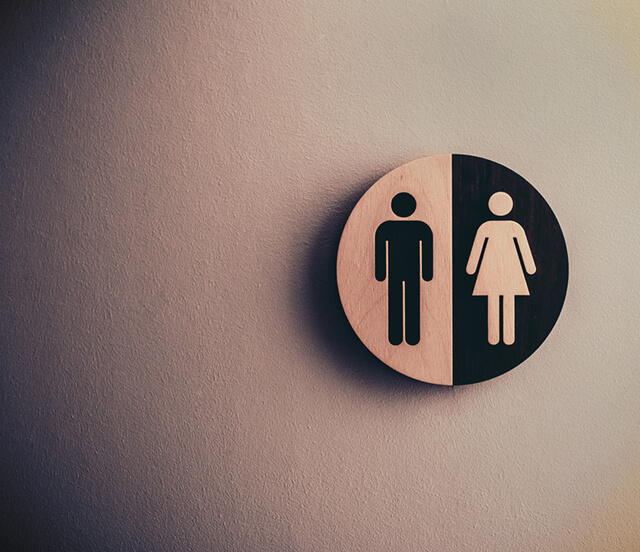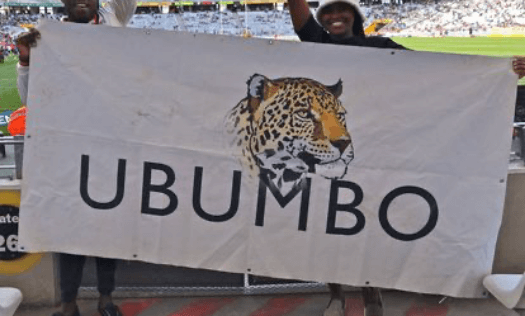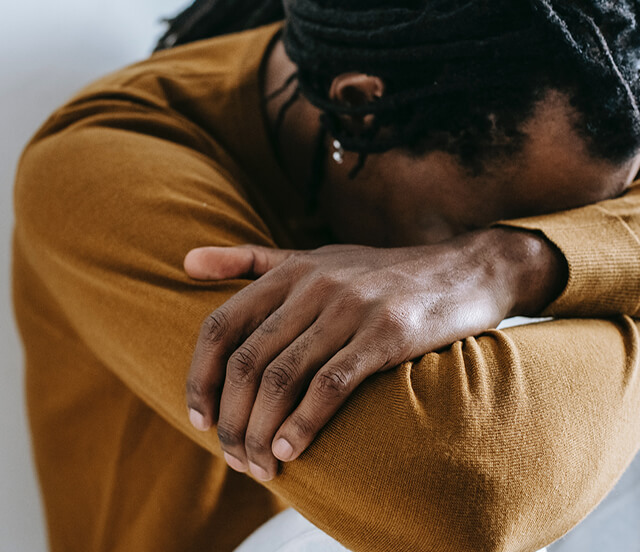by Siqhamo Yamkela Ntola
A version of this article was originally published in Fruitful Discussions on August, 9th, 2021.
This post is adapted from a peer-reviewed journal article I authored titled “South Africa’s governance perspective on the Indian Ocean Rim Association’s (IORA) focus are on women’s economic empowerment” (2020) Agenda: Empowering women for gender equality 34:4 at 98-111.
Gender mainstreaming is an approach that seeks “to institutionalise equality by embedding gender-sensitive practices and norms in the structures, processes and environment of public policy” (Daly, 2005: 435). To this end, ahead of shedding light on South Africa’s governance perspective on gender mainstreaming in its maritime sector, and the need for more emphasis in this regard, this post highlights, at a global and continental level, key policy frameworks that aim to advance this approach. At a regional level, it highlights and discusses the specific works of the Indian Ocean Rim Association’s (IORA) focus group on women’s economic empowerment.
Global and continental policy frameworks
Under Transforming Our World: The 2030 Agenda for Sustainable Development (“Agenda 2030”), Goal five of the Sustainable Development Goals (SDGs) aims to “achieve gender equality and empower all women and girls”. Goal five evidences the international community of States’ recognition of how gender parity in political, economic and public life is crucial for sustainable development. Achieving Goal five hinges on meeting seven targets, which include, among others, ensuring “women’s full and effective participation and equal opportunities for leadership at all levels of decision-making in political, economic and public life” and adopting “and strength[ing] sound policies [and] enforceable legislation for empowerment of all women and girls at all levels”.
Goal 14 of the SDGs pertains to sustainable oceans development. Generally, the Goal aims to “conserve and sustainably use the oceans, seas and marine resources for sustainable development”. Achieving this Goal requires leadership in the three areas where Goal five indicates a need for gender parity. As such, the pursuit of Goal 14 targets may aid the realisation of Goal 5 targets. This is in contrast to the SDGs predecessor, the Millennium Development Goals (MDGs) (operational from the year 2000 to 2015), which have been criticised as having a narrow focus on poverty that translated to, among other things, meagre attempts in addressing gender disparities towards meeting its development objectives. The basis for this critique includes, inter alia, ineffective consultation procedures on development that cast a narrow, technical process of poverty alleviation with minimal reference to factors causing economic want and disparity (Harcourt, 2005; Fukuda-Parr, 2016; Gabizon, 2016). Accordingly, the Agenda 2030 and its SDGs has been postulated to be of greater use to the women’s rights movement, owing to greater participation and the SDGs being born of a vow of realising human rights and an acknowledgement of the connections between inequality, margination and poverty (Esquivel and Sweetman, 2016; Stuart and Woodroffe, 2016).
It is important to note that the notion of women’s economic empowerment has been conceptualised to entail economic success and gain for individual women based on the skills and resources necessary to compete in markets and equal access to economic institutions, as well as “the ability of women to take and act on decisions and control their own resources and profits” (Rimmer, 2017: 5). In this sense, development frameworks seeking to advance women’s economic empowerment have been held to adhere to concepts of liberal feminism and neoliberal economic frameworks. In this regard, O’Manique and Fourie (2016: 121) argue that the SDGs “perpetuate rather than challenge the systemic drivers of gender injustice, silencing feminist critiques which demand systemic transformation [owing to] liberal feminism and its more insidious twin, economic neoliberalism, which have captured mainstream development discourse”. Therefore, whilst it has been submitted that there is a positive correlation between gender and development as captured in the SDGs (Kotze and Bohler- Muller, 2018), this issue and the reservations expressed, pertain to all areas of sustainable development – including developing an oceans economy.
At a continental level, the link between oceans development and women’s economic empowerment has implicitly permeated to key policy frameworks such at the African Union’s Agenda 2063: The Africa We Want (“Agenda 2063”), which as a first aspirations aims for [a] prosperous Africa based on inclusive growth and sustainable development”. The same is also true with regard to the 2050 Africa’s Integrated maritime Strategy (“2050 AIMS”). While the links between gender parity and oceans development are indirect at a global and continental level, the IORA, a regional intergovernmental organisation to which South Africa is a Member State, has been more direct in its endeavours.
IORA’s focus group on women’s economic empowerment
The IORA comprises of 22 Member States whose shores are washed by the Indian Ocean. Accordingly, its Member States are within three continents. In terms of its Charter, the IORA’s main objectives include, among other things, sustained growth and balanced development through regional economic cooperation. It has six priority and two focus areas, of which, as earlier indicated, women’s economic empowerment is one of the two focus areas. The IORA accorded formal recognition to this focus area in 2013 which is hailed as extraordinary considering that the organisation is consensus based and no Member State opposed the resolution. Since then, the focus group has adopted programmes and instruments that bring emphasis to gender empowerment and equality. Concerning the instruments, these are namely the 2016 Declaration on Gender Equality and Women’s Economic Empowerment (“2016 Declaration”) and the 2018 Balaclava Declaration on Women’s Economic Empowerment and Gender Equality as a Pre-Requisite for Sustainable Development (“2018 Declaration”). Key recognitions in the 2016 Declaration include, among other things, that:
women’s economic empowerment is a foundational element of gender equality and the full and equal realisation of women’s human rights;
women’s full and equal participation and leadership in the economy are vital for realising gender equality and empowerment of women that will make a crucial contribution to progress across all goals and targets of the Agenda 2030; and
women’s voice, participation in leadership and decision-making is important in our quest for gender equality and women’s economic empowerment and sustainable economic growth.
The latter point is exceedingly important to the cause. However, as crafted, it does not go far enough. Whilst the voice and participation of women is necessary to achieve the IORA’s objectives, they are insufficient for attaining tangible empowerment. This is owing primarily to a need for a substantive shift from skewed power relations to usher in a culture that realises that in tandem with representation, equal pay and equal work, are women’s agency; and that, authority and autonomy are critical to women’s empowerment generally, and economic empowerment in particular (Panday, 2016). In this regard, Kotze and Bohler-Muller (2018: 134) submit that
gender mainstreaming extends beyond the realm of quotas in political representation and issues of equal opportunity, equal pay for equal work, and equal treatment. It entails looking beyond the notion of procedural equality and highlighting power and structure that either support or undermine the creation of full autonomy and authority for women. In other words, it requires [a] focus on elements that undermine the substantive equality of women.
The 2018 Declaration differs to that of the 2016 Declaration in that IORA Member States expressly indicate the integral role of women empowerment towards sustainable development. In this sense, empowerment is taken to mean gender inclusiveness, gender parity and the rights of women and girls. Although there are intersections between these elements from a human rights perspective, their separate presentation invites in-depth discussion relating to their respective meanings and thus development and application. With women’s economic empowerment and gender equality considered a prior condition for sustainable development, IORA Member States have aligned to the SDGs “Leave No-one Behind” concept, acknowledging, albeit tacitly, the need to consider differences between women on grounds of ethnicity, socio-economic status, power and privilege. These grounds are arguably more prevalent in the global south and as such, making IORA’s objectives more challenging to achieve – but not impossible. As part of the States forming part of the global south, South Africa’s constitutional jurisprudence and development objectives generally favour gender mainstreaming.
South Africa: Ocean development and women’s economic empowerment
South Africa’s coastline of approximately 3000 km and vast seaward jurisdiction extending on both the Atlantic and Indian Oceans, portrays, among other things, its economic potential at sea. Cognisant of this, South Africa adopted Operation Phakisa (Oceans Economy) (“Phakisa”) in 2014 to unlock the country’s oceans economy to assist in addressing issues highlighted in the National Development Plan 2030 (NDP 2030) such as poverty, unemployment and inequality. In fact, improvement in the maritime sector and women’s empowerment (generally) are articulated in the NDP 2030 and inherent in the Government’s Nine-Point Plan aimed at socio-economic growth, development and transformation in numerous areas (Potgieter, 2018). Concerning women, the NDP 2030 notes that the economy’s transformation should involve the active participation of and empowerment of women.
Through Phakisa, South Africa has identified six working streams with two enablers. The working streams include: (i) marine transport and manufacturing; (ii) offshore oil and gas exploration; (iii) aquaculture; (iv) marine protection services and ocean governance; (v) harbours; and (vi) coastal and marine tourism. The enablers are (i) skills and capacity building and (ii) research, technology and innovation (DEA, 2021). Concerning skills and capacity development, the Department of Higher Education and Training (DHET) has taken the lead and contributed towards the establishment of the South African International Maritime Institute (SAIMI), whose objectives include supporting professional development in the maritime sector as well as coordinating “all skills and capacity building activities for all Operation Phakisa Oceans Economy” work streams (DEA, 2021). The 2017 Comprehensive Maritime Transport Policy (CMTP) for South Africa is among the guiding instruments for SAIMI, with objectives including the creation and enhancement of feasible and sustainable opportunities for historically disadvantaged entrepreneurs especially, inter alia, women (CMTP, 2017). No other policy pertaining to the oceans economy has sufficiently made the link between its development and women’s empowerment. The CMTP, albeit limited to transport, confines its application to women in entrepreneurship.
Housed in South Africa’s Presidency is the Ministry for Women, Youth and Persons with Disabilities (MWYPD). The MWYPD’s Framework on Gender-Responsive Planning, Budgeting, Monitoring, Evaluation and Auditing may be a useful tool to guide South Africa’s policy makers and legislators on the role women ought to occupy in developing the economy generally, and the oceans economy in particular. The Framework indicates that women’s exclusion from South Africa’s mainstream economy and their lack of opportunity to engage meaningfully in the economy is owing to, among other things “[p]atriachy and unequal gender relations; [a] legacy of racial oppression and marginalisation; and [u]nequal access to ownership and control of the economy and productive resources (2018: 5)”.
The MWYPD Framework does well to identify some of the elements that undermine the substantive equality of women. Flowing from its counsel should be the development of an oceans economy that champions the economic development of women. Such an approach will find basis not only in the NDP 2030, but in South Africa’s constitutional values of dignity, equality and non-sexism which have been developed through its constitutional jurisprudence.
Indeed, as an approach, and as earlier indicated, gender mainstreaming enjoys constitutional basis in South Africa on two fronts. First, women have played a role in bringing about the present dispensation. Mkhize and Mgcotyelwa- Ntoni (2019: 12) note that “[w]omen’s activism resulted in [South Africa’s] first democratic Parliament” which passed, among others, significant laws for addressing gender equality and mainstreaming, giving effect therefore to provisions of equality (s 9) and dignity (s 10) under the Constitution”. “It is evident that women activists’ experiences during apartheid and post-apartheid have thus had a positive impact on women taking leadership roles in public sectors, especially in government” (Mkhize and Mgcotyelwa-Ntoni 2019: 12).
On the second front, as a result of women’s activism, gender mainstreaming is part and parcel of the transformative tenets of South Africa’s Constitution, which are entrenched in its preamble and values. Noteworthy is the articulation of these tenets in the Postamble of South Africa’s Interim Constitution (Langa, 2006), serving as an aide memoire that the provisions contained therein are owing to an ideal that endured human suffering and injustice, and birthed with it, hope for a society where the values of dignity, equality, non-racialism and non-sexism abundantly reign.
My perspective
On oceans development as a propeller towards women’s economic empowerment, frameworks of organisations like the AU and the IORA to which South Africa is a Member State, favour the advancement of women. South Africa’s own framework on oceans development is yet to make these specific strides. However, its membership in the above organisations arouse hope that its policy direction as it pertains to women’s empowerment in developing its oceans economy will align. In this sense, South Africa need not cast its eyes far for guidance as the IORA has already identified areas of priority. It is thus recommended that in further developing its policy framework, which currently positions skills and capacity building as one of its enablers, South Africa expressly prioritise women. South Africa can involve its MWYPD to facilitate the inclusion of women’s perspectives. This is because when considering the Ministry’s Framework on Gender-Responsive Planning, Budgeting, Monitoring, Evaluation and Auditing, its inputs potentially bring weight to those elements that undermine the substantive equality of women, thus inspiring the converse. Cognisant of the contribution of civil society and gender activist groups in developing South Africa’s constitutional dispensation, the MWYPR may, either through it or an independent platform, encourage women participation from the above sectors to offset overlapping inequalities. In so doing, South Africa will be further giving effect to those global, continental and regional governance instruments that broadly provide for the economic empowerment of women, as well as operating within the parameters of its constitutional jurisprudence. The feasibility of these actions in light of South Africa’s economic downturn owing to gross corruption in the public and private sector, which has been compound by the “Covid-19” global pandemic, is arguably low. With that said, talks on boosting South Africa’s economy in light of the latter challenges are futile if they exclude a seaward-gaze, more so if such gaze fails to prioritie the economic advancement of women generally – and black women in particular.
This post and more insightful articles by Siqhamo are available on his blog fruitfuldiscusssions.com.






